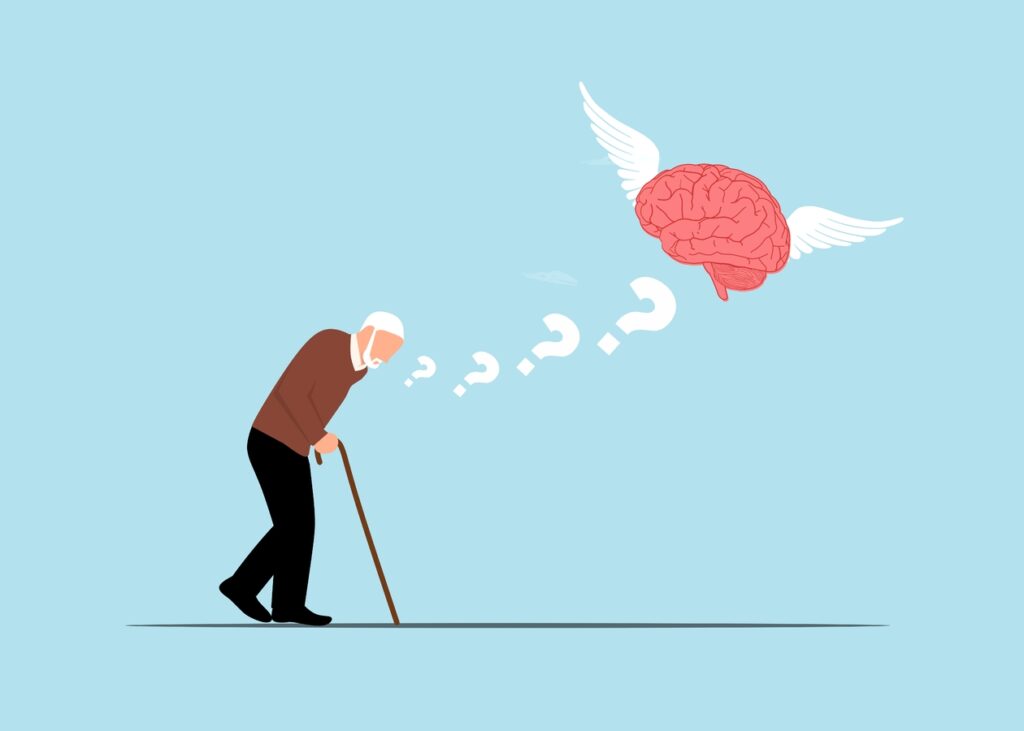Common Bad Habits That Can Increase Your Risk of Dementia
The prospect of developing dementia is frightening for many people. According to Alzheimer’s Disease International:
- Someone in the world develops dementia every 3 seconds
- As of 2020, there were over 55 million people worldwide living with dementia.
- This number will almost double every 20 years, reaching 78 million in 2030 and 139 million in 2050.
We don’t have control over some risk factors that increase the likelihood of developing dementia, such as age, family history, race and ethnicity, heart health, and a history of traumatic brain injury, but we do have control over our habits. We can be proactive about changing our lifestyle and the habits that elevate our risk of developing dementia.
So, what are the common bad habits that increase the likelihood of developing dementia?

Getting Consistently Poor Sleep
Sleep is absolutely essential for the brain to recharge and repair itself, and chronic sleep deprivation or poor sleep quality can contribute to cognitive impairment and increase your risk of dementia. If you consistently feel tired because your body is not getting the sleep it needs, it’s time to change your sleep habits.
Establishing a regular sleep routine, avoiding screens and other stimulating activities before bed, and creating a sleep-friendly environment are all crucial steps to ensure adequate and restorative sleep. Don’t scroll through social media at bedtime! Not only does the bright light suppress melatonin and mess up your circadian rhythm, but you may see something stressful that disturbs you and keeps you awake.
Eating an Unhealthy and Unbalanced Diet
Do you eat a lot of processed foods? And yes, that includes those ‘healthy’ ultra-processed protein bars and drinks! Processed food is ok now and then, but the majority of a healthy, nutrient-rich diet should come from:
- Vegetables, particularly leafy greens
- Fruits, particularly berries
- Whole grains
- Nuts
- Beans
- Fish
- Lean proteins
- Olive oil, avocado, and other healthy fats
Limit:
- Sweets
- Cheese
- Red meat
- Fried foods
- Butter
- Fast food
When in doubt, opt for a colorful, nutrient-rich diet that provides the essential vitamins, minerals, and antioxidants that support brain function and reduce your risk of cognitive decline.
Insufficient Physical Activity or Prolonged Sitting
As we age, most people move less. It’s just a fact. Look at children – they move around so much! Young people in their 20s and 30s tend to exercise more, but as we get older, people begin to sit more and move less — just when they should be moving more. As we approach our 60s, the likelihood of developing dementia increases. If we also begin to sit for hours in front of the television or a computer without moving, we further increase the likelihood that our cognitive health will decline.
At Ageless Grace, we’ve been telling people for years that consistent exercise reduces cognitive impairment and the risk of dementia. Physical activity promotes blood flow to the brain, stimulates the growth of new neurons, and improves overall brain function. So, get moving! Take an Ageless Grace class, go for a walk, discover new activities that you love such as yoga, swimming, or Tai Chi.
Social Isolation
Surprise! Having friends is good for you. (But you already knew that.) Maintaining an active and socially integrated lifestyle protects against dementia while stimulating the brain and preventing feelings of loneliness and isolation. Socializing with others also contributes to overall well-being. Poor social health can lead to:
- elevated blood pressure
- reduced blood flow to vital organs
- increased stress levels
And speaking of stress…
High Levels of Persistent Stress
Persistent and chronic stress can have significant negative effects on brain health and increase your risk of dementia. Stress triggers the release of cortisol, a hormone that, when elevated over a prolonged period, can damage the brain and impair cognitive function. Adopting stress-reduction techniques such as exercise, mindfulness meditation, seeking support from friends and engaging in hobbies can help protect the brain from the detrimental effects of chronic stress.
Excessive Alcohol Consumption
Regular and excessive alcohol consumption over the years can damage the brain and increase the risk of dementia. Alcohol-related brain damage (ARBD) causes memory problems and impaired cognitive function. To reduce the risk of dementia, it is crucial to moderate alcohol consumption and seek help if struggling with alcohol dependency.
Addressing these common bad habits can significantly reduce your risk of developing dementia. However, it is important to remember that dementia is a complex condition influenced by multiple factors. Regular medical check-ups, early detection, and seeking appropriate medical advice are essential for maintaining brain health and well-being.